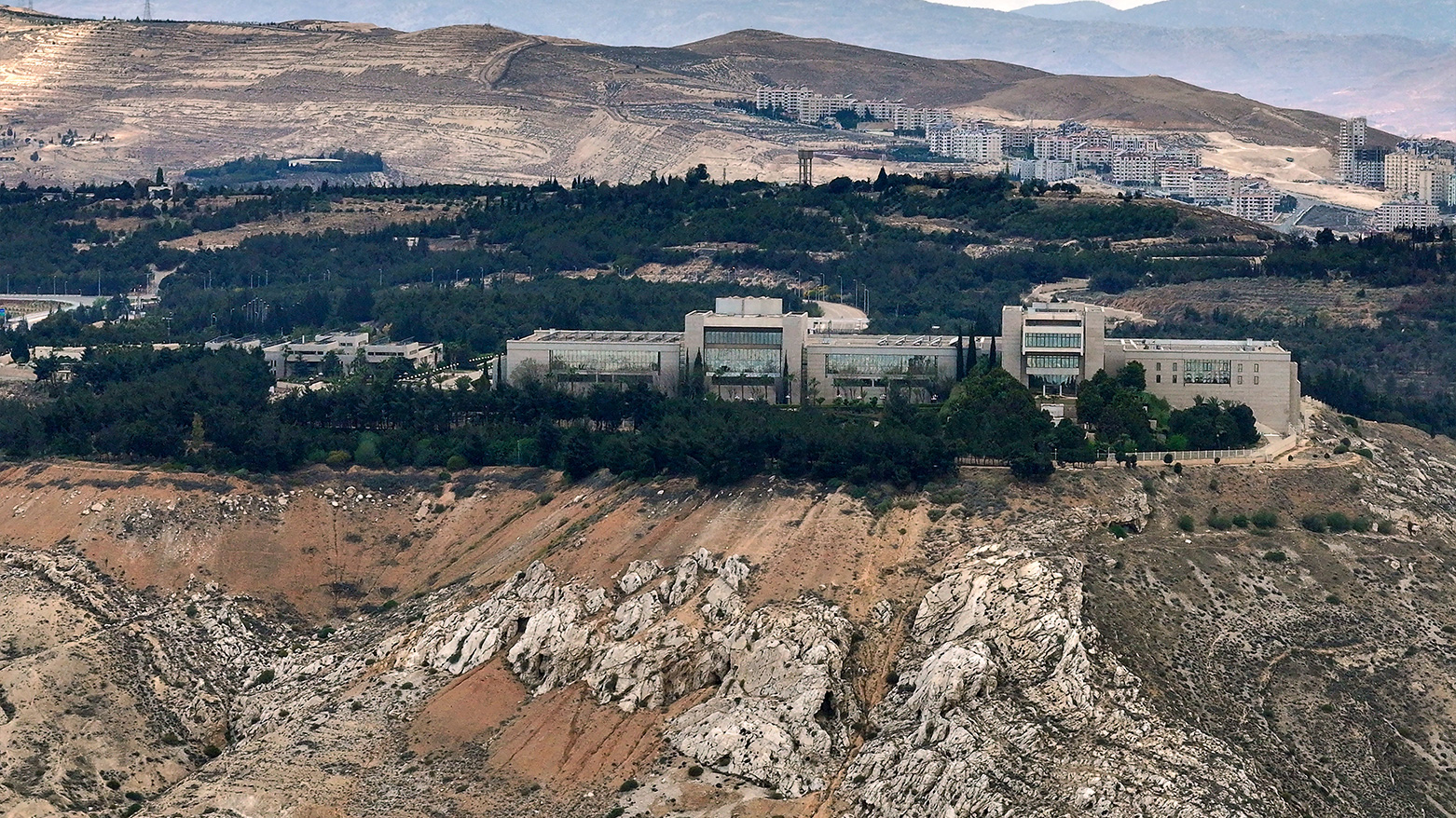'A Dangerous Escalation,' Syria Slams Israeli Strike on Presidential Palace
“This condemned attack reflects the continuation of suspicious movements aimed at destabilizing the country, deepening security crises, and threatening national security and the unity of the Syrian people,” the statement by the Syrian Presidency declared.

By Kamaran Aziz
ERBIL (Kurdistan24) — In a statement issued on Friday, the Syrian government condemned what it described as a "dangerous escalation" after Israeli airstrikes reportedly targeted the presidential palace in Damascus, calling on Arab nations and the international community to rally in defense of Syria's sovereignty and territorial integrity.
The statement, released by the Presidency of the Syrian Arab Republic, accused Israel of launching a direct assault against one of the state’s highest institutions. The shelling, which occurred late Thursday night, was labeled a flagrant violation of international law and a calculated attempt to destabilize Syria’s already fragile political landscape.
“This condemned attack reflects the continuation of suspicious movements aimed at destabilizing the country, deepening security crises, and threatening national security and the unity of the Syrian people,” the statement declared, warning that such escalations posed grave risks not only to Syria but to regional stability as a whole.
While Israel initially withheld comment, Israeli Defense Minister Israel Katz confirmed the strike the following day, framing it as a “clear warning message” to Syria’s interim president, Ahmed al-Sharaa. Katz emphasized that the operation was a direct response to Syria’s failure to protect the country’s Druze minority from recent waves of violence perpetrated by jihadist groups.
“When Joulani [a nom de guerre for al-Sharaa] wakes up in the morning and sees the results of the Israeli Air Force jet attack, he understands very well that Israel is determined to prevent harm to the Druze in Syria,” Katz stated. The strike, which reportedly hit a site near the presidential palace, was personally authorized by both Katz and Prime Minister Benjamin Netanyahu.
According to The New York Times, this marked the second Israeli intervention in Syria within days, underscoring a strategic shift toward more overt and assertive military engagement. The raid came amid escalating sectarian clashes in and around Damascus, particularly in Druze-populated districts such as Jaramana and Ashrafieh Sahnaya. Violence erupted after a widely circulated audio recording—allegedly featuring a Druze cleric insulting the Prophet Muhammad—sparked outrage among Sunni armed groups. Although Syrian authorities denied the cleric’s involvement, tensions quickly spiraled out of control, leaving over 100 dead, according to the Syrian Observatory for Human Rights and Al-Monitor.
The Israeli military claimed it targeted “operatives” involved in attacks on Druze civilians and also provided emergency medical treatment to wounded Syrian Druze. Troop deployments along Israel’s northern border were reportedly increased to deter further incursions into Druze villages in southern Syria.
Prime Minister Netanyahu emphasized the moral and strategic dimensions of the operation, stating that Israel could not tolerate threats to the Druze community. Yet Syrian clerics and community leaders expressed deep skepticism about Israel’s intentions. “They didn’t protect us before; why would they protect us now?” a Druze cleric told The Washington Post. “They’re doing this for their political benefit, not ours.”
Behind the escalating conflict lies a deeper fragmentation of state authority in Syria. Interim President Ahmed al-Sharaa, a former commander of Hayat Tahrir al-Sham (HTS)—a group with past affiliations to al-Qaeda—has struggled to assert full control since the ousting of Bashar al-Assad in December. Many of the factions that helped him rise to power remain beyond the command structure of the new government. Reports from the Wall Street Journal indicate that foreign fighters aligned with radical militias have been installed in senior positions in Syria’s security forces, fueling fear among minorities who recall earlier massacres.
The most severe of these was the March killing of more than 1,600 Alawites in coastal areas, an atrocity that has hardened sectarian lines. Al-Monitor reported that Sheikh Hikmat al-Hijri, spiritual leader of the Druze, accused the interim government of collaborating with Takfiri extremists and demanded international intervention. In response, Syria’s foreign ministry condemned what it called external interference.
Local Druze militias have taken up arms to defend their communities, often operating autonomously from the state. The New York Times noted that even during the peak of Syria’s 14-year civil war, regions like Sweida and Jaramana rarely witnessed such open sectarian conflict. Now, they are frontlines in an increasingly localized war. Attempts to integrate Druze militias such as Rijal Al-Karama into the national army have failed. According to The Wall Street Journal, some have even seized government facilities and declared de facto autonomy.
Meanwhile, Druze communities in Israel have staged protests, demanding protection for their kin in Syria. The Israeli government, citing strong cultural and familial ties, has increasingly justified its military actions as both a security imperative and a moral responsibility.
As investigations into the strike continue, Syrian security agencies have pledged to hold the perpetrators accountable and vowed to enhance efforts to thwart future threats to national institutions and civilian safety. The Presidency emphasized that national unity remains the cornerstone of Syria’s resilience, asserting that attempts to fracture it—whether by internal dissidents or foreign actors—will be firmly resisted.
The statement by Syria's Presidency seems to reiterate a commitment to reform and reconstruction, declaring, “Syria will never compromise on its sovereignty or its security, and will continue to defend the rights of its people by all available means.”
With sectarian violence deepening, regional powers staking out more aggressive roles, and the Syrian state still grappling with internal fragmentation, the situation in southern Syria remains volatile. The fate of the country’s Druze population, caught between warring factions, foreign interventions, and collapsing institutions, reflects the broader turmoil engulfing the post-Assad order.
